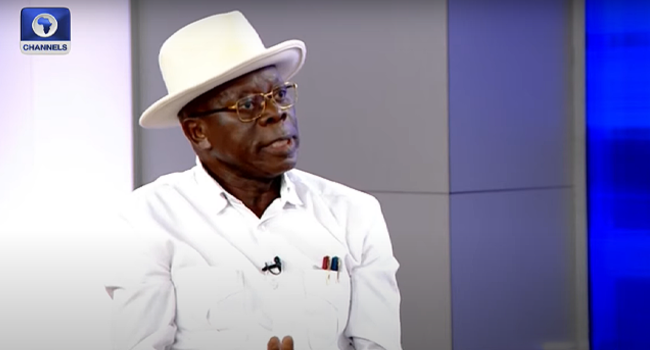The senator raised the concern on Wednesday during the Senate’s debate on Nigeria’s growing insecurity. Oshiomhole questioned why some judges allegedly ignore clear statutory provisions on terrorism offences.

“How can an offence that carries the death penalty be reduced by a judge to 20 years in prison? That is not acceptable. The judge has violated the laws passed by the parliament,” he said.
The Senate President, Godswill Akpabio, then asked, “Has this happened in Nigeria already?”

Oshiomhole responded, “It has. Someone convicted of terrorism was sentenced to 20 years in prison, even though the law states that an act of terrorism, if convicted, shall attract the death penalty. No judge has the right to issue a lesser sentence.”
The Edo North senator stressed that judges must uphold the law rather than act on sentiment.

“It is only after the law has been implemented and properly interpreted not based on a judge’s emotions, but on the will of the people expressed through the law
that the president can decide whether there is any basis to commute or reduce a sentence,” he added.
Oshiomhole also expressed concern over inconsistent judgments from different courts and questioned why cases involving self-defence sometimes receive harsher punishments than terrorism convictions.

“I am troubled by conflicting judgments from various high court judges. Someone who allegedly killed an attacker on his farm was sentenced to death, yet there is no evidence that those who attack and kill farmers are being convicted or sentenced to death,” he said.
He argued that such inconsistencies worsen national security challenges.

His remarks followed the recent sentencing of ISWAP commander Hussaini Ismaila. A Federal High Court in Abuja sentenced Ismaila to 20 years in prison on November 19 after he pleaded guilty and showed remorse. The court ordered the sentences to run concurrently, resulting in a maximum of 20 years.




